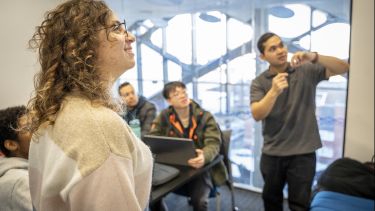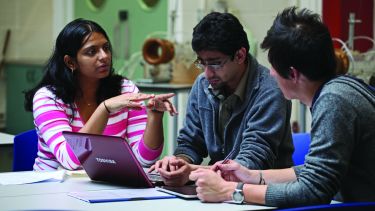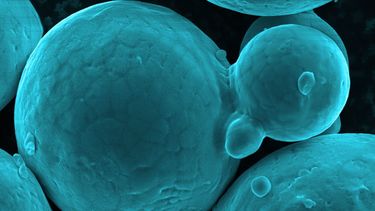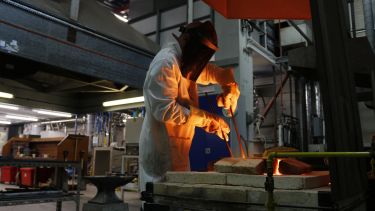
School of Chemical, Materials and Biological Engineering
Our interdisciplinary school is leading scientific exploration and engineering expertise in sustainability solutions, biomedical innovation and advanced materials. We address crucial issues like climate change, energy poverty, affordable medicine, sustainable agriculture and green manufacturing.
Our research
News
Address
School of Chemical, Materials and Biological Engineering
Sir Robert Hadfield Building
The University of Sheffield
Mappin Street
Sheffield
S1 3JD
Contact us
General enquiries: cmbe@sheffield.ac.uk
Current student enquiries: cmb-studentsupport@sheffield.ac.uk
Telephone: +44 114 222 7521
Any questions?
If you're thinking of studying at the University of Sheffield and need more information, you can call or message us on live chat.












